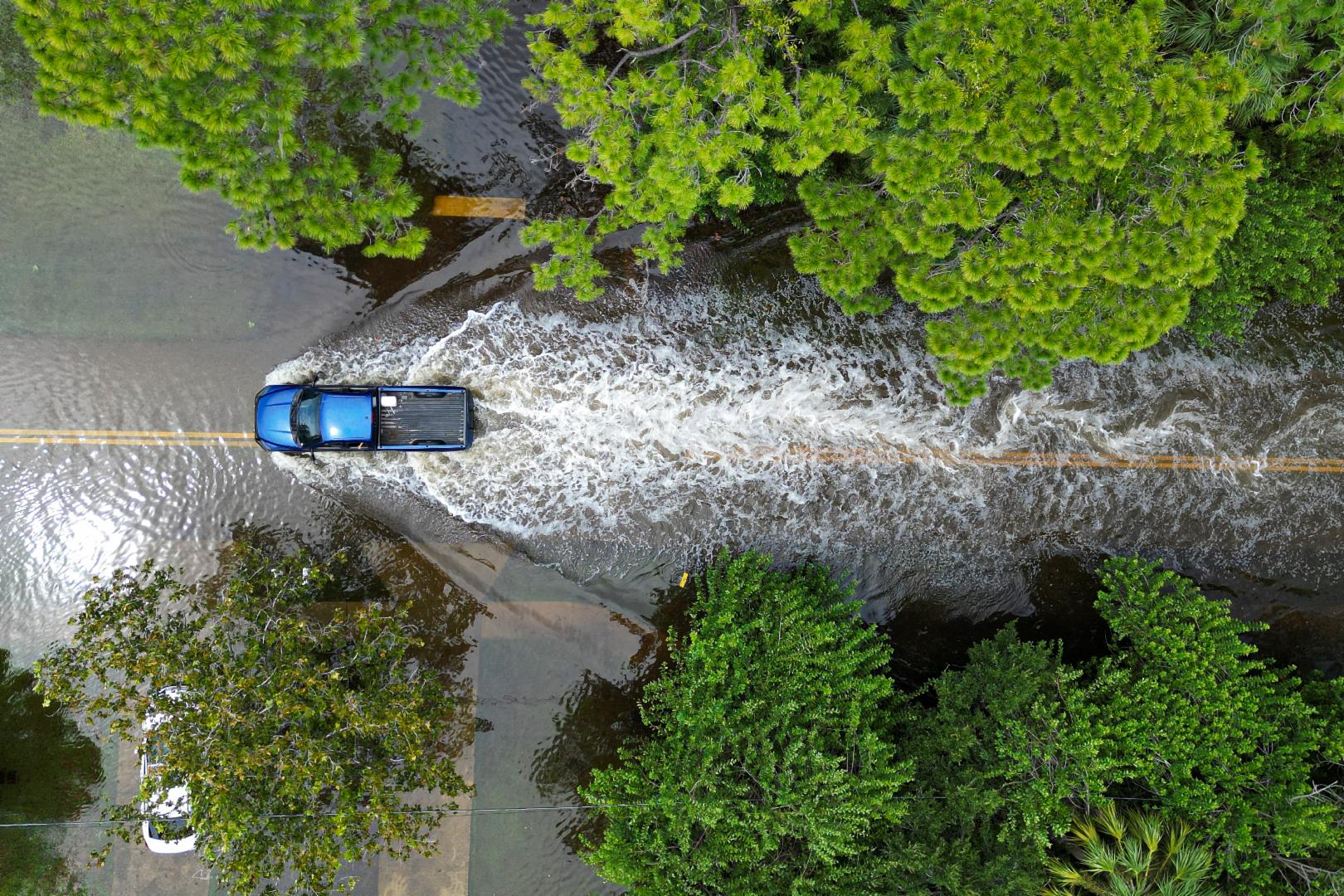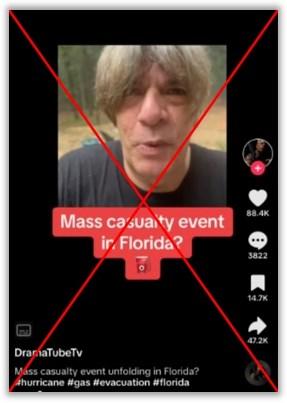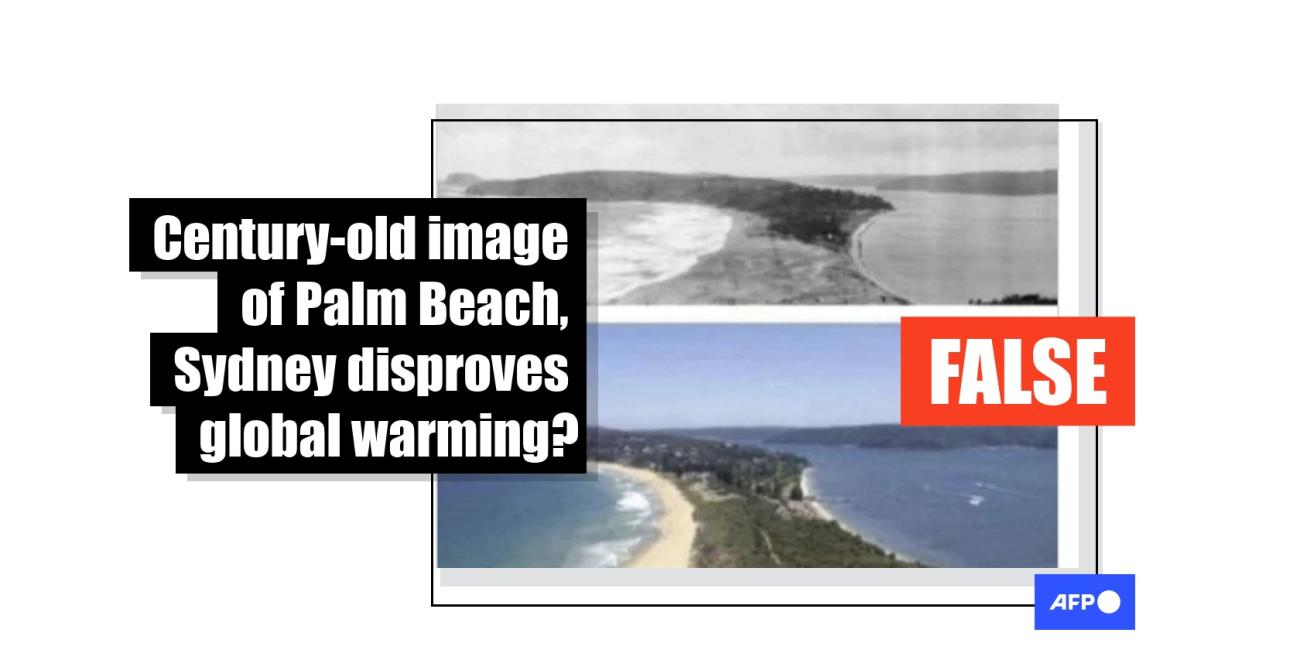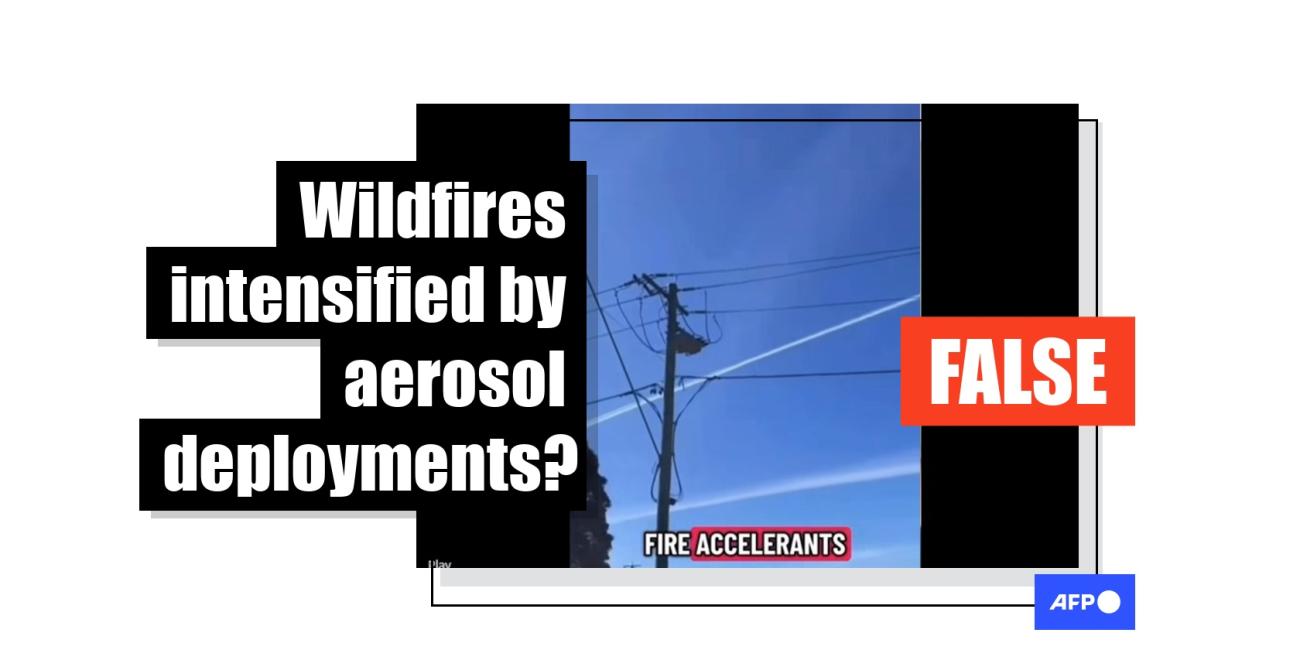
Gas contamination during Hurricane Idalia sparks 'mass casualty' conspiracy theory
- This article is more than two years old.
- Published on September 1, 2023 at 18:15
- 3 min read
- By Natalie WADE, AFP USA
"A STORM COMING AND GAS STATIONS ARE CLOSED DUE TO 'Contaminated Fuel' THEY REALLY WANT EVERYONE DEAD!" says an August 28, 2023 post on X, formerly known as Twitter.
In another post on TikTok with more than 1.1 million views, a man says: "They'll get on the interstates and highways and byways in Florida, and their vehicles will suddenly die. This is the ingredient for mass casualty event."


Social media users elsewhere on X and TikTok suggested the incident, in which diesel was inadvertently mixed with gasoline, was "planned." Similar claims spread on Facebook, Instagram and YouTube.
Hurricane Idalia crashed into northwest Florida on August 30, drenching coastal communities as officials warned of "catastrophic" flooding in parts of the southern US state. A Category 3 storm when it made landfall, its potentially deadly high surging waters triggered mass evacuations.
As residents braced for Idalia's impact, Florida officials warned drivers of potential gas contamination at dozens of Citgo-supplied stations on the Gulf Coast.
But there is no evidence the incident was planned -- and both the state and the petroleum company quickly notified residents.
The Florida Department of Agriculture and Consumer Services (FDACS) announced August 27 that the contamination, which affected 29 stations, was due to "human error" (archived here). Citgo also published a statement about the incident (archived here).
"It has nothing to do with the storm, but it’s happening right on the eve of the storm," Florida Governor Ron DeSantis said during an August 27 press conference (archived here).
Governor Ron DeSantis Delivers Update on Tropical Storm Idalia https://t.co/i6QRY3RLh3
— Ron DeSantis (@GovRonDeSantis) August 27, 2023
Florida's Division of Emergency Management waived size, weight and hour restrictions for transporting gas and diesel in the state to ensure consumers would have access to fuel as quickly as possible, executive director Kevin Guthrie said at the news conference.
The US Environmental Protection Agency (EPA) also granted a waiver to the state's Department of Environmental Protection "to temporarily adjust certain regulatory requirements statewide so the state can ensure a sustained, useable fuel supply" (archived here).
Under normal circumstances, the Clean Air Act compels companies to switch from selling higher-volatility gasoline in the winter to lower-volatility fuel during the summer to limit ozone pollution (archived here).
The EPA waived that requirement in Florida. Officials asked affected stations to stop selling gas until the fuel was replaced and the tanks cleaned.
A Citgo spokesperson told AFP the company "immediately shut down the rack" where fuel is stored and distributed when it discovered the issue.
"All Citgo marketers who lifted gasoline and diesel from the terminal between 8 am and 2 pm on that day were notified and asked to stop sales," the firm said in an August 31 email.
No smart city connection
Other social media users linked the fuel snafu to smart cities, an urban design philosophy that has previously been the subject of misinformation.
The claims are similar to posts that spread online after wildfires ravaged the Hawaiian island of Maui in August -- with some making a direct comparison.
"Is it a coincidence Tampa Fl is on the list of Smart Cities to be implemented? Is it a coincidence that a majority of Tampa gas stations had contaminated fuel days before Hurricane Idelia (sic)?" says an August 28 X post.

However, there is no connection.
Although Tampa has strategic goals to improve infrastructure, sustainability and affordability (archived here), AFP did not find any evidence that the town is on a list of soon-to-be "smart cities."
Such municipalities "use information and communication technologies (ICT) to improve the ways they operate," according to National Grid, an energy company operating in the United States and the United Kingdom.
AFP contacted the Florida Division of Emergency Management and the Tampa City Planning Office for comment, but responses were not forthcoming.
AFP has fact-checked other false and misleading claims about hurricanes here.
Copyright © AFP 2017-2026. Any commercial use of this content requires a subscription. Click here to find out more.
Is there content that you would like AFP to fact-check? Get in touch.
Contact us




